Capital Improvement Sales Tax Extension – Public Vote in 2026
Elected officials in Cole County and Jefferson City have begun discussions on the next extension of the capital improvements tax that is set to expire in 2026. The current ½ cent capital improvement sales tax funds road, bridge and infrastructure projects in both the City and County. In the past, voters have continued to support the tax extension in five-year increments, discussions are ongoing to increase the extension for ten years to ensure longer-range planning can occur with the reliability of the revenue streams to cover the costs of the projects.
Once a final plan is reached with city and county elected leaders, we expect the city voters to hold their election in April 2026 and the county voters to decide in November of 2026. Over the years, the HBA of Central Missouri have been very supportive of this tax and extensions as it has led to many community benefits that have benefited our industry and the economic growth of our area.
House Interim Committee Studying Local Property Tax Reforms
The House Special Interim Committee on Property Tax Reform kicked off its first of several planned committee hearings in Jefferson City this month and dedicated over five hours to committee discussion and considering testimony, to discuss the issues surrounding property tax reform. Chairman Tim Taylor (R-Bunceton) opened the hearing by specifying the purpose of the committee is to examine Missouri’s property tax system and propose solutions to ensure fairness, transparency and sustainability for taxpayers and municipalities across the state. The committee was informed that the hearings’ purpose moving forward is to gather as much information from stakeholders and citizens, which is why the committee plans to conduct the following hearings throughout various locations throughout the state.
The fifteen committee members present were then allowed to provide a brief statement of property tax issues in their specific districts and provide any viable solutions for reform. Committee members’ issues ranged from inconsistent assessment practices, resistance to change in any form, problems within the State Tax Commission and a lack of transparency. Some of the solutions offered included implementing Fair Tax Practices, lowering of excise taxes, enacting consumption taxes and bond debt reform. Committee members also expressed concerns regarding any changes made to voter approved taxes and when and how municipal elections are conducted.
The committee then opened the hearing to receive public testimony. Those that presented before the committee included representatives from Cooper County, county commissioners, several public library districts, the Missouri Ambulance Association, Lynn County Ambulance District, Hillsborough Fire Protection District, Missouri Association of Fire Protection Districts, Missouri Association of Fire Chiefs, Ambulance District Association of Missouri, AARP, the Missouri Association of County Auditors, the Missouri Municipal League, MO Tax Relief Now, Missouri Council on Aging, Saratoga Lakes LLC and the Missouri Association of County Clerks and Election Authorities.
Testimony included concerns regarding the authority of the State Tax Commission utilizing data that is not applicable for all counties which penalizes smaller counties who cannot afford exorbitant property tax increases, and the outdated technology used to provide assessment data to the counties. Additional concerns raised included the focus on the impact property taxes have on budgets for schools and emergency services and no other entities which rely heavily on property taxes. Those who provide emergency services stressed there is a lack of access to healthcare in rural areas and any cuts or changes to budgets would impact on the services they could provide. It was also suggested that rather than make sweeping changes, make reforms to implemented processes such as discovering why assessment ratios for classifications of property are at the current levels. Concerns were also expressed regarding the implementation of SB 190 as there was not a reasonable timeline added to the language to allow for a realistic implementation of new processes. Finally, it was suggested the commercial assessment rates also be included in the discussion of tax reform as businesses are part of the economic drivers of their communities.
The State Tax Commission also appeared before the committee to answer questions regarding MOUs issued to counties, the use of the Attorney General to force county compliance, the role of the Board of Equalization, the lack of an ombudsman to receive citizen complaints and the appeals process and current assessment ratios.
We fully expect the topic of property taxation and real estate assessment to be a major issue in the 2026 Missouri legislative session next January.
Individual Health Plan Legislation Passes and Signed by Governor Kehoe
On July 14th and a public ceremony at the Missouri Farm Bureau headquarters in Jefferson City Missouri, Governor Mike Kehoe (R) signed Senate Bill 79 into law. SB 79 allows the Missouri Farm Bureau to offer health plans to their members, which may provide an affordable coverage option versus the current federally created health insurance marketplace. Under the new state law, the Missouri Farm Bureau may offer a health benefit just as their neighboring associations currently provide in Arkansas, Iowa, Kansas, and Tennessee. This legislation provides a health care option for sole proprietors, small business owners, and individuals who do not currently qualify for an employer sponsored plan. The new law will take effect on August 28, 2025, and for more information you may want to visit the Missouri Farm Bureau website at www.mofb.org

